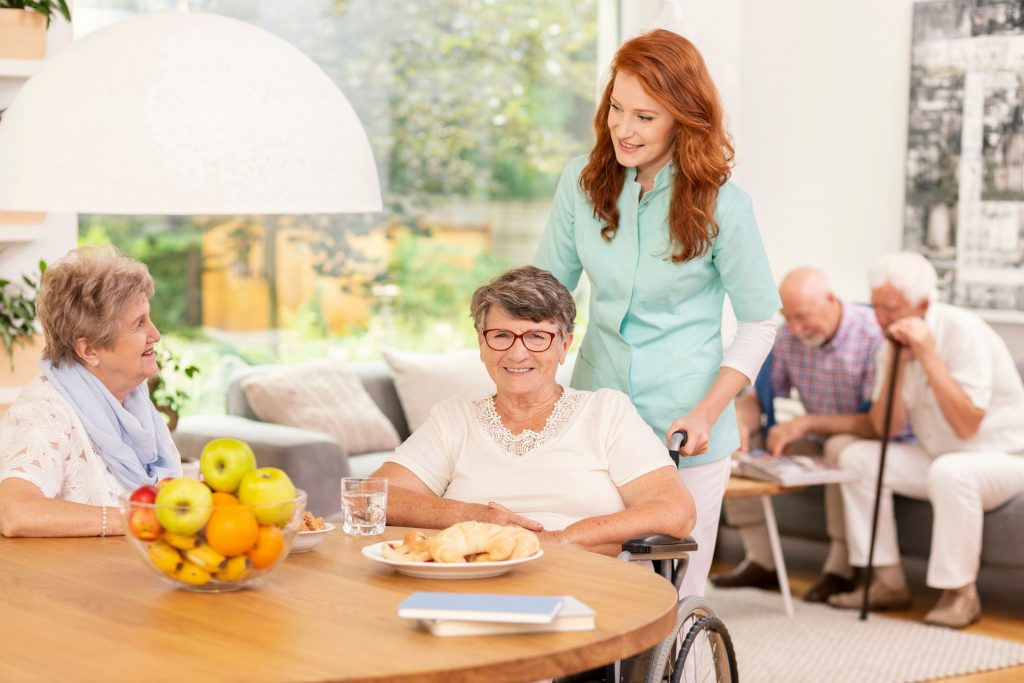Your aging parents deserve the best care possible. They need to experience individualized care that values them as they approach their twilight years—no matter their condition. Through rapid advances in the health tech market, they can now access unprecedented levels of medical attention and support.
Healthcare technology trends are reshaping how we approach elder care, making it more efficient, personalized, and accessible than ever before. From artificial intelligence or AI-driven diagnostics to immersive therapeutic experiences, these health tech innovations are transforming every aspect of elderly healthcare delivery.
Smart Monitoring: Keeping a Watchful Eye
Remember the days when checking on your elderly loved ones meant constant phone calls or frequent visits? Those days are fading fast. Remote patient monitoring has become a game-changer in senior patient care.
Modern wearable devices can detect irregular heart rhythms, monitor blood oxygen levels, analyze sleep patterns, and even predict potential falls based on gait analysis. These devices send real-time alerts to healthcare providers and family members. You’ll find peace of mind knowing that healthcare professionals can spot potential issues before they become emergencies.
Streamlining Senior Care
Integrated software platforms complement these monitoring devices. Together, they’re revolutionizing providers to manage care delivery. Comprehensive senior living solutions combine resident monitoring, staff scheduling, residents’ health profiles, medication management, and family communication into single, unified systems.
These platforms also streamline documentation, automate routine tasks, and generate detailed analytics about resident well-being. This integration ensures that no important details slip through the cracks while dramatically reducing the administrative burden on healthcare providers.
AI-Powered Predictions and Prevention
Artificial intelligence’s predictive capabilities are changing how we approach disease management. That’s why healthcare software development focuses on its integration into healthcare systems.
Predictive analytics systems can forecast health complications with remarkable accuracy. These platforms analyze thousands of data points from electronic health records, including medication histories, vital signs, lab results, and genetic information, to identify patients at risk of specific conditions. As a result, healthcare providers can initiate preventive measures and early intervention—even in neurological conditions and other chronic diseases associated with aging. This impressive technology is saving lives and reducing hospital readmissions among elderly patients.
Virtual Care: Breaking Down Distance Barriers
Healthcare systems have been undergoing digital transformation in recent years, making distance irrelevant when it comes to accessing quality care. Through telehealth platforms, seniors can now connect with their healthcare providers from the comfort of their homes. On top of video calls, these platforms integrate with remote monitoring devices, support secure file sharing, and enable virtual physical therapy sessions.
Modern telehealth platforms include features like automated appointment reminders, medication tracking, and integrated family portals where caregivers can stay informed about their loved one’s health status. Some advanced systems even offer remote physical examinations using connected devices that can listen to heart and lung sounds or examine skin conditions with high-resolution cameras.
Personalized Care Through Data Analytics
Big data has revolutionized how healthcare leaders approach patient care. Health systems now utilize sophisticated analytics to create individualized treatment plans based on vast amounts of patient data. These systems can analyze outcomes across thousands of similar cases to identify the most effective treatments for specific patient profiles.
Analyzing data from millions of patient records, healthcare organizations can now predict which medications are most likely to be effective for individual patients based on their specific genetic makeup, lifestyle factors, and medical history. This level of personalization extends to rehabilitation programs, dietary recommendations, and even exercise routines, ensuring that each patient receives the most effective care plan for their unique situation.

Cognitive Health and Virtual Reality
One of the most exciting developments in the past few years has been the use of virtual reality in cognitive health maintenance. Health tech companies are creating immersive experiences that help seniors maintain mental acuity and social connections. These platforms offer sophisticated cognitive training programs that adapt to each user’s abilities and progress.
VR systems provide environments where seniors can safely practice daily living activities, engage in physical therapy exercises, or participate in virtual social gatherings. Some programs can recreate historical periods or familiar places from a person’s past, helping with memory recall and emotional well-being. Research has shown that regular use of these VR programs can slow cognitive decline and reduce feelings of isolation.
AI Companions and Social Support
The latest advancement in digital health involves the use of generative AI and large language models to create intelligent companion systems. These AI assistants can engage in meaningful conversations, understand context, and even detect changes in a person’s emotional state through voice analysis.
Modern AI companions can learn a person’s daily routines, preferences, and medical needs, providing personalized support throughout the day. They can also help maintain social connections by facilitating video calls with family members or suggesting social activities.
Empowering Independence Through Technology
The healthcare industry is increasingly focusing on solutions that help seniors maintain their independence while ensuring their safety. Smart home technologies integrated with healthcare systems now create comprehensive monitoring environments that preserve dignity and autonomy. These systems include advanced features like:
- Smart medication dispensers that track compliance and alert caregivers about missed doses
- Automated lighting systems that activate based on movement patterns to prevent falls
- Voice-activated emergency response systems
- Smart sensors that can detect changes in daily routines that might indicate health issues
- Automated environmental controls that maintain optimal living conditions
The future of elderly healthcare promises even more innovative health tech solutions, especially through converging various technologies. Even so, they’re most effective when integrated thoughtfully into existing care routines. Work with your providers to understand which solutions best fit your loved one’s needs and comfort level with technology.
Wrapping Up
Elderly healthcare is increasingly relying on health tech to create more personalized, proactive, and effective health and care systems that truly improve lives. Nonetheless, maintaining the human element of care is crucial to making the most of these innovations. The goal isn’t to replace traditional care but to enhance it for an effective healthcare experience for our elderly population.




